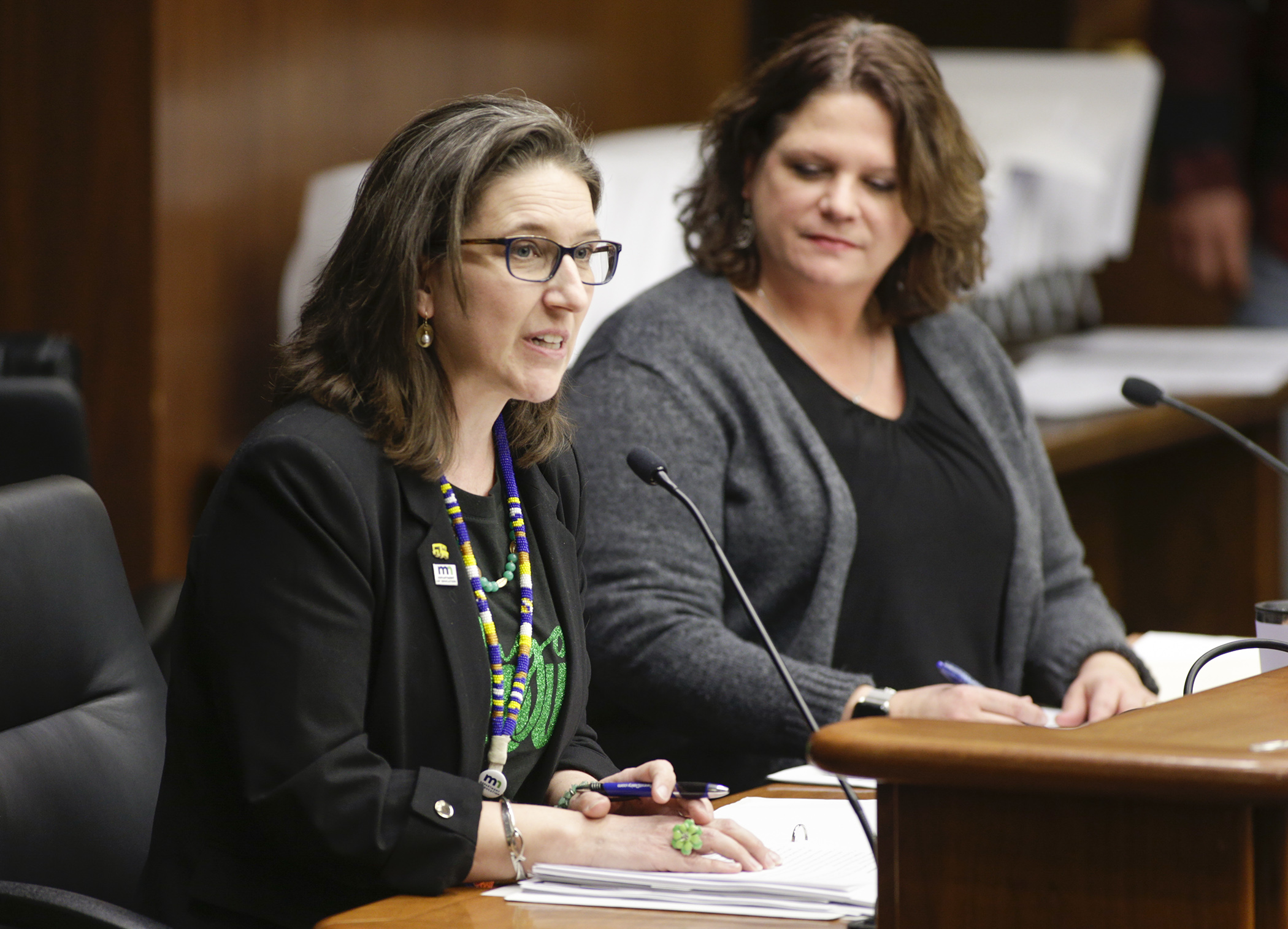Governor's education policy plan proposes changes to teacher licensure

After passing a $543 million education funding package last year, Gov. Tim Walz switched gears, focusing on making education policy changes that range from modifications to the teacher licensure system to requiring schools to use non-exclusionary disciplinary practices.
“As we were crafting our policy proposals for this legislative session, we kept our work centered on equity for our students because we all believe that every student, no matter their race or ZIP code, should receive a world class education that is taught by caring and qualified educators and that is a safe and nurturing school environment,” explained Education Commissioner Mary Cathryn Ricker.
The House Education Policy Committee reviewed the governor’s proposal, HF3186, Wednesday. The bill, sponsored by Rep. Cheryl Youakim (DFL-Hopkins), the committee chair, was held over for possible omnibus bill inclusion. The companion, SF3393, awaits action by the Senate E-12 Finance and Policy Committee. Sen. Greg Clausen (DFL-Apple Valley) is the sponsor.
The proposal includes changes to school disciplinary policies, which would require administrators to intervene and redirect a student’s negative or disruptive behavior, using non-exclusionary practices, rather than turning toward suspension or expulsion.
“An important part of this is making sure we end discipline disparities, beginning with our youngest learners,” Ricker said. “That’s why I’m advocating to prohibit the dismissal of students in our school-based prekindergarten programs.”
Alternatives to suspension — or non-exclusionary disciplinary practices — include social and emotional services, school-linked mental health services, social work services, referrals for special education, academic screening and alternative education services.
“Students can’t get a world class education if they aren’t in our classrooms,” Ricker said.
In addition to disciplinary policy changes, the proposal includes changes to the teacher licensure system, including allowing Tier 1 teachers to join bargaining units, removing the basic skills test requirement for all teachers, and requiring pedagogical training to receive a higher-tiered license.
Several testifiers expressed opposition to the proposed changes to the licensure system, particularly the component that would require educators to complete a teacher prep program before being eligible to receive a Tier 3 or Tier 4 license.
By limiting the ability for Tier 2 teachers to move to Tier 3 through three years of successful teaching experience, it eliminates pathways for permanent licensees for many career and technical teachers, according to Sarah Shanley, a member of the Minnesota Association for Career and Technical Administrators.
Other provisions that drew criticism include changes to the required academic standards and credit requirements for graduation. The proposal would aim to better align them, as years of new statutes and rulemaking has created inconsistencies between the two, according to Doug Paulson, director of academic standards at the Education Department.
Some testifiers shared opposition to the changes, explaining that a few seemingly technical provisions — including changes to the science course requirement and specifying the number of required physical education credits — would have profound impacts.
“This seemingly small provision could have a negative impact on CTE programs that allow many students and school districts to offer science classes with actual applications in our CTE courses,” Shanley said. “By specifying the science discipline that is not aligned with CTE programming it takes significant opportunities from hundreds our CTE students.”
Related Articles
Search Session Daily
Advanced Search OptionsPriority Dailies
Ways and Means Committee OKs proposed $512 million supplemental budget on party-line vote
By Mike Cook Meeting more needs or fiscal irresponsibility is one way to sum up the differences among the two parties on a supplemental spending package a year after a $72 billion state budg...
Meeting more needs or fiscal irresponsibility is one way to sum up the differences among the two parties on a supplemental spending package a year after a $72 billion state budg...
Minnesota’s projected budget surplus balloons to $3.7 billion, but fiscal pressure still looms
By Rob Hubbard Just as Minnesota has experienced a warmer winter than usual, so has the state’s budget outlook warmed over the past few months.
On Thursday, Minnesota Management and Budget...
Just as Minnesota has experienced a warmer winter than usual, so has the state’s budget outlook warmed over the past few months.
On Thursday, Minnesota Management and Budget...